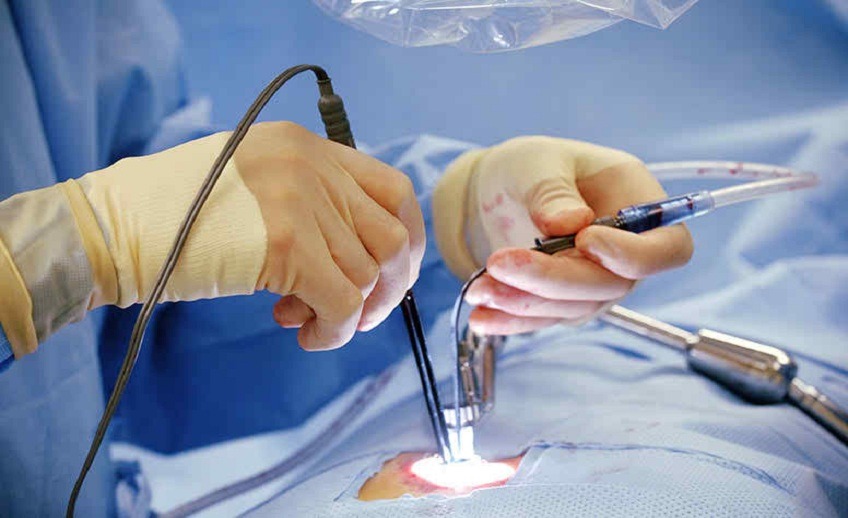Minimally Invasive Spine
Surgery
in Delhi
Home / Minimally Invasive Approach Minimally Invasive Spine Surgery in Delhi

Table of Contents
Table of Contents
The main motive of this Minimally invasive spine surgery in Delhi is to keep your spinal joints and vertebral bones steady. It offers several benefits compared to open surgery. This surgery treats various conditions such as bone spurs, spinal tumors, scoliosis, herniated discs, and spinal instability. Read on to learn more about minimally invasive spine surgery.
What is minimally invasive spine surgery?
In a conventional open surgery, where a doctor makes a long cut (incision) through the skin. So that the surgeon can see where the surgery will be done, a lot of the surrounding muscle and tissue is pulled away from the bone or spread out. This can lead to pain and more muscle damage after the pain.
In minimally invasive spine surgery in Delhi, a surgeon makes a small cut around ½ inch through the skin. An endoscope or a small metal tube is fixed through the cut, which allows the surgeon to work with a smaller operative field. Compared to traditional surgery, operating through smaller cuts hurts soft tissues and muscles less.
What kinds of spine surgeries can be done with a minimally invasive approach?
Several types of spine surgeries can be done with the help of a minimally invasive approach. Such as:
- Deformity alignments for treating kyphosis and scoliosis
- Spinal fusion for treating slipped discs
- Spinal tumor decompression
- Stabilization or repair of vertebral compression fractures
- Spine infection
- Lumbar spinal stenosis
Who are the candidates for minimally invasive spine surgery in Delhi?
Not every spine patient is a candidate for MIS surgery. Every surgery should be customized for each patient. Nevertheless, before surgery is recommended, your healthcare provider might decide if there are a few other treatment options that must be tried before MIS surgery is performed.
What are the advantages of minimally invasive spine surgery in Delhi?
MIS surgery offers various benefits over traditional open surgery, such as:
- Lower chances of infection
- Less pain after the surgery
- Less anesthesia
- Less soft tissue and muscle damage
- Less use of pain medications
- A few days of hospital stay
- Less recovery time
How do I prepare for minimally invasive spine surgery?
- Stop smoking. Ask your doctor for help. There are a few programs and medications that can help you quit quickly.
- Perform daily exercises to keep your muscles and body in good shape and reduce your recovery time.
- Ensure that you and your doctor review every product you take a few weeks before the surgery. You might need to stop taking unnecessary herbal remedies and medications, as these might react with medications you might be given by your doctor.
Your doctor will order an MRI (Magnetic Resonance Imaging) test or X-rays of your spine. You might be prescribed medications to take before or after the surgery. These can help you prevent infection. You will also be provided with a diet plan just a day before the surgery.
What is the procedure for minimally invasive spine surgery in Delhi?
Local anesthesia will be injected into your body to numb the area around your spine, and you will be given general anesthesia to put you to sleep during the minimally invasive spine surgery.
There are various available techniques. The one thing common among all of them is that a surgeon makes one small cut through the skin—through your abdomen, chest, or back—rather than one long cut.
To check where to make cuts, a surgeon might use an endoscope or fluoroscope. An endoscope is a narrow instrument that is connected to a small camera that records the internal view of the spine on the television screens of the operating room. A fluoroscope is a compact X-ray device that offers concurrent spine images during minimally invasive spine surgery in Delhi.
Tiny surgical instruments are passed from the endoscope or through other ½ inch cuts, via which tubular retractors are set down.
Tubular retractors are narrow, vacant tubes. It helps create a small tunnel that provides operating space from your skin opening to the targeted part of your spine. Instruments are placed inside with the help of one or more retractor tubes. With the help of these retractors, tissue and bones from the spine are also taken out during surgery. Retractors hold muscles away from the surgery area. Your muscles return to their initial position once these tubes are removed.
After the entire process, your cuts are closed with stitches and covered with small bandages or surgical tape.
What is to be expected during recovery from minimally invasive spine surgery in Delhi?
Compared to conventional surgery, minimally invasive spine surgery in Delhi causes less pain, a shorter hospital stay, less damage to tissues and muscles, and a quicker recovery.
Generally, the hospital stay after MIS surgery is 3–5 days. Everyone’s full recovery time is different, depending on their spinal problem, the level of difficulty of the surgery, their age, their overall health, and how experienced the surgical team is. It might take months for you to recover completely. Ask your doctor about the time expected for your recovery.
Your doctor might suggest physiotherapy to help you get stronger and get better more quickly.
Ensure that you keep every follow-up appointment with your spine surgeon in Delhi. He will track your progress and help you clear all your doubts.
What are the risks and complications involved in minimally invasive spine surgery?
A few general MIS surgeries include:
- Terrible reaction to anesthesia
- Pneumonia after the surgery is completed
- Deep vein thrombosis that might expand to your lungs
- Infection at the surgery site
A few certain risks involved in MIS surgery include:
- A nerve or spinal cord injury leading to pain or paralysis, although the risk of paralysis is very rare (about 1 in 10,000 cases).
- Leak in spinal fluid
- Damage to nearby tissues
Note: In a few rare cases, minimally invasive spine surgery might not go as planned. In such cases, traditional open surgery might be needed.
Contact us to book an appointment and let Dr. Amit Chugh, a spine specialist with a lot of experience and a high level of professionalism, take care of your case. He tries his best to navigate the best and safest options for his patients. And if you are looking for the best surgeon for minimally invasive spine surgery in Delhi, there is no need to worry because you are in the safe hands of a well-known spine specialist in Delhi.

